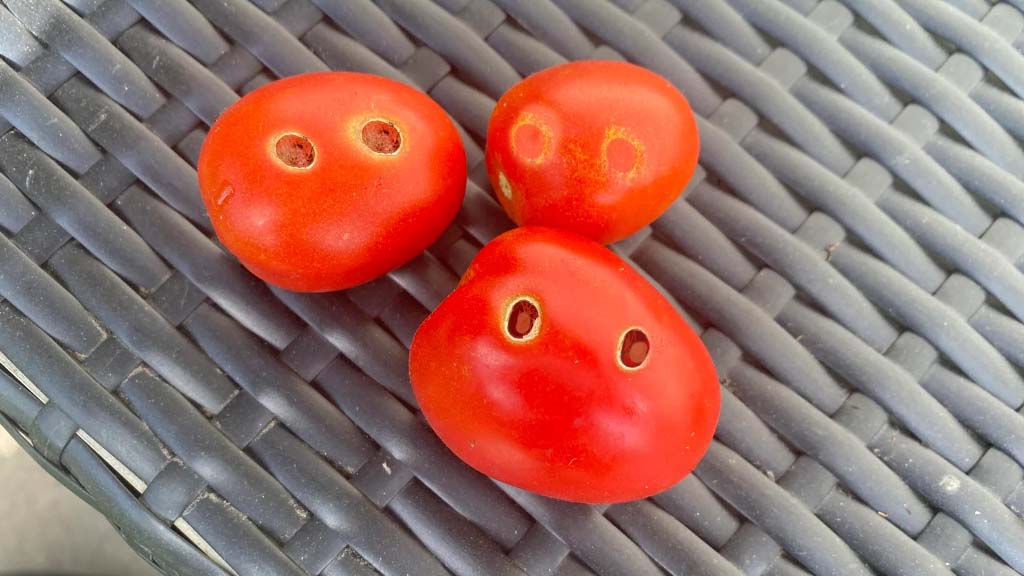- Web
- Feb 15, 2026
Are holes in fruits and vegetables a sign of snake bites?
-

- Web Desk
- Dec 25, 2024

WEB DESK: There have been multiple posts circulating on social media showing pictures of tomatoes and different fruits, such as apples, with holes in them, warning users to be cautious.
These posts advised people that such fruits and vegetables should not be consumed, claiming they might have been snake-bitten.
The posts gained significant reach and likes across social media platforms. Following this, reels started appearing where random individuals would display a fruit or vegetable with holes and claim that such produce should be avoided as it may contain poison due to snake bites, potentially leading to “death.”
These reels have been increasing and misleading people, with some even believing that these fruits were indeed snake-bitten and dangerous to consume.
However, this appears to be more of a strategy to garner views or go viral, as this is unlikely to be true. According to a report by AFP, snake breeders in Thailand stated that fruits and vegetables are not part of reptiles’ natural diet, contradicting the social media posts that warned snakes occasionally bite into tomatoes, leaving small holes as they inject “poisonous substances.”
While experts told AFP that the marks shown in the images shared with the posts do not appear to have been made by snake fangs, a botanist advised that it is best to avoid consuming fruits or vegetables with gaping holes.
“Precautions should be taken when consuming tomatoes, as finding tomatoes with these abnormal features may cause concern,” read the Thai-language caption of a collage shared on Facebook.
The collage showed an image of a snake biting into a tomato, alongside pictures of holes in tomatoes. The caption claimed that the holes might have been created by a snake bite, asserting that snakes occasionally bite fruits when hungry. “Your vigilance will protect you from ingesting poisonous substances injected into fruits by animals.”
Similar claims were shared on Facebook, Instagram, Threads, TikTok, and X and were repeatedly posted in Burmese. Although the vast majority of commenters dismissed the warning, a few users appeared to have been misled. “Now I know… Thank you so much for the information,” read one comment. Another said, “Good to know!”
However, Saranont Charoensuk, senior manager and head of operations at Bangkok’s Siam Serpentarium snake museum, told AFP, “By nature, snakes do not bite or eat vegetables and fruits.”. “The snake in the first photo is a viper—a venomous snake that preys on small mammals, reptiles, and amphibians,” he added on December 3.
Taksa Vasaruchapong, acting head of Thailand’s venomous snake husbandry centre, also confirmed that snakes are carnivorous and do not consume fruits or vegetables. He also told AFP on December 3 that ingesting snake venom orally is far less potent than exposure through the bloodstream, as “snake venoms are proteins that can be broken down by gastric acid.”
Both experts agreed that the holes seen in the circulating images were unlikely to be made by snake bites. Taksa added that snake bites are not easily identifiable, as their fangs are “as small as syringe needles.”
Teerada Wangsomboondee, a professor with Chulalongkorn University’s Department of Botany, told AFP that, in any case, it would be best to avoid consuming fruits and vegetables with visible holes. “If such gaping holes are visible, the insides of the fruit would be mushy and soggy,” Teerada said on December 20. “Whether the holes are caused by pests or worms, there would be no nutritional value left.”
Read next: Toyota’s global car output falls for 10th straight month




